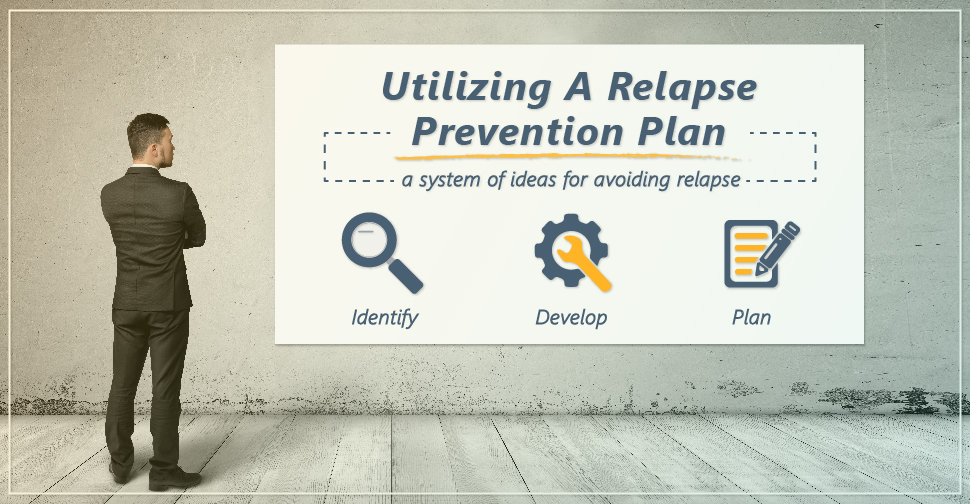
A relapse prevention plan is a system of ideas for avoiding relapse. Utilizing coping skills is often challenging, especially in early recovery. When you’ve grown accustom to using a substance to deal with stress, you’re forced to choose alternatives on your path to sobriety.
That’s when a relapse prevention plan is so crucial. It provides strategies and techniques for coping with stress and makes each event a little less difficult. Sticking to a strict plan is important in maintaining sobriety, as it offers options when those in recovery experience confusion or difficulty coping.
Identifying Relapse Triggers
A relapse trigger is an event or emotion that stimulates the urge to start using again. In order to utilize a relapse prevention plan, you must identify your personal triggers. If you’ve relapsed before, it may help to take note of your surroundings before the incident. This can help you develop a plan and see yourself through future triggers. While listing triggers, consider:
- People and places that could influence your decision to relapse.
- Emotions, such as anxiety and depression.
- Potential breakups, deaths, and work trouble.
- Financial distress.
- Hunger, anger, loneliness, and tiredness (HALT).
- Accessibility of substances.
- Arguments or physical altercations.
Identifying your common relapse triggers is tricky because are predictable while others can take you by surprise. Regardless of the nature of the trigger, sobriety should be your number one concern. While it’s not fun to think of the possible adversity you’ll face, utilizing this information can make a big difference in the success of a relapse prevention plan.
Developing A Plan Of Action
Once you’ve identified your relapse triggers, it is time to develop a plan of action. In order to do this, you must think of the best ways to combat potential situations before they happen. If you are having trouble in your relationship, for instance, you may need to identify this as a potential trigger. Having a system can assist you in maintaining sobriety when times are most difficult. To develop a plan of action:
- List potential triggers and a possible exit strategy for each. Consider simple solutions at first so you are better able to process your situation.
- Have contact information readily available for your sober living coach, sponsor, a trusted friend, and/or a family member. This will give you resources for guidance and help keep you grounded while working through the cravings.
- Write potential rationalizations for use and the reasons they are wrong. While you’re committed to being sober, your mind is much clearer than it will be when a trigger strikes. It helps to have a sober reminder of your commitment to recovery.
- List the reasons for your sobriety and the implications of relapse.
- Consider the possibility of relapse and develop a course of action to deal with it. While it is not ideal, the actions following a slip up can make all of the difference in the outcome.
- Attend AA meetings or therapy sessions.
Many programs will implement a relapse prevention plan as part of addiction treatment. Informing your therapist, sober living coach, sponsor, close friends, and family of your plan can help carry out the strategy if there is trouble. Each time you resist the urge to relapse you’re developing coping skills and further increasing the chances that sobriety will stick.
A Plan For Sobriety
When facing hurdles in recovery, a relapse prevention plan offers a lifeline to many people. These plans help those in recovery remain sober. Sometimes, your plan will need updating to stay relevant. Maintaining your plan will aid in lasting sobriety, even after you’re confident in your power.
Becoming aware of triggers and utilizing your tools can make all of the difference. By developing a plan, you are furthering your commitment to recovery, and providing yourself the tools to succeed.
We Can Help
 Sobriety is made much easier when a relapse prevention plan is in place. If you or a loved one needs help developing or utilizing a plan, the caring staff at DrugRehab.org is here for you. We can help you through any concerns you may have regarding your new journey. Contact us today.
Sobriety is made much easier when a relapse prevention plan is in place. If you or a loved one needs help developing or utilizing a plan, the caring staff at DrugRehab.org is here for you. We can help you through any concerns you may have regarding your new journey. Contact us today.
